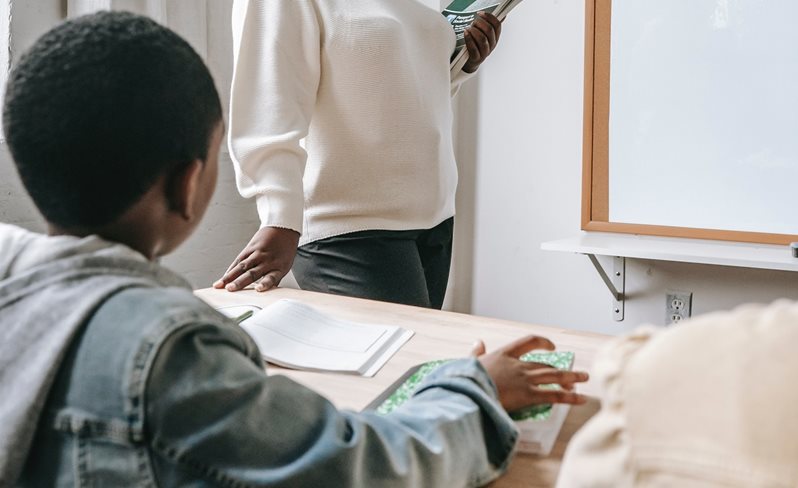A Lesson in Culturally Responsive Teaching
Taylor Alston |
July 14, 2022
Original Published Date: 6.22.2021. Updated: 7.14.2022
I grew up in a household with parents who lived through Jim Crow laws and the civil rights movement. Throughout their childhood, my parents were taught never to look a white person in the eye because it could have detrimental implications for a young person of color in the 1950s.
Because of my parent's experience, they instilled the importance of self-pride in me. They taught me to look people in the eye when spoken to because it's a sign of respect. Even when I got into trouble as a child, my parents would say, "Look at me when I'm speaking to you." That's a lesson I have carried with me throughout my life.
In the early stages of my teaching career, a student named Eduardo came into my life. He was one of my third-grade students - full of energy and talked a ton! One day, I remember pulling him to the side because he was in the orange zone on the class behavior chart, which meant a student received a consequence for their behavior. Eduardo's consequence on this given day was sitting out for part of recess. I remember asking him, "Do you understand why you sat out at recess?" Eduardo kept looking down at his feet and shaking his head, not saying anything. Then I told him, "I'm speaking to you. You need to look at me when I'm speaking to you. You are being disrespectful, Eduardo." Nervously, he continued looking at his feet in silence. Another third-grade teacher was standing nearby on the playground that day and was listening in on the conversation.
Later that day, she pulled me aside to discuss what had happened. "I heard what you said to Eduardo about looking into your eyes when you spoke to him and that he was being disrespectful," she recounted. "In my home, I was taught the opposite. To look into an adult's eyes is disrespectful. It shows that you don't have respect for an adult's authority."
That teacher's call-out was a game-changer for me. I remember thinking, wow, I just disregarded Eduardo's culture because he didn't respond in the way I've always been taught. I was reiterating my cultural experience and, in turn, forcing that expectation onto Eduardo.

The next day, I approached Eduardo and asked, "Do you remember our conversation from the playground yesterday?" He looked down at his shoes for a moment, awkwardly looked up at me, then back down again. I reassured him, "Eduardo, it's okay to look at me or down at your shoes." We had a conversation about the different ways people respond to authority figures. I shared what my parents taught me when it came to showing respect to an authority figure, and he shared his parent's teachings. We acknowledged our differences and understood the different perspectives we both possessed based on our unique experiences.
Towards the end of our conversation, I asked Eduardo if he understood our conversation's purpose. After a moment of deep thought, he nodded, and a small smile began to emerge. I explained that I knew he wasn't being disrespectful, and I appreciated his honesty and willingness to allow me to learn from him. Then Eduardo did something he had never done before – he hugged me. He hugged me EVERY DAY after that.
Months later, Eduardo completed an assignment where he had to illustrate the definitions of his vocabulary words. One of his illustrations was of him and me with the captions "My teacher understaks me." 'Understand' was one of his words that week, and although he didn't spell it right, he absolutely nailed the definition.
The incident with Eduardo broadened my view of culture beyond my family's perspectives. Eduardo wasn't wrong in his reaction, and my parents weren't wrong in their teachings. Our perspectives on authority were driven by our unique experiences. Eduardo also taught me that when you make a mistake, it is imperative to have the humility to make it right again.
I am thankful for the teacher that brought up the incident and shared her perspective because it gave me the space to reflect on how I needed to respond to Eduardo. I am also thankful for my parents' life experience and dedication to ensuring I had a strong sense of self-worth. Finally, I am grateful for Eduardo. Our improved relationship paved the way for building better relationships with all my students.
Taylor Alston is the Senior Director of Coach Development. Our regionally-based coach corps supports core programs through content development and delivery to teachers and students. Learn more.